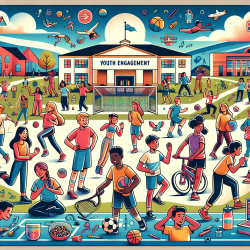Introduction
In the realm of special education, understanding the nuances of student satisfaction and well-being is paramount. Recent research titled The role of personality in neighborhood satisfaction provides intriguing insights that can be extrapolated to enhance practitioner skills. This study delves into how personality traits influence neighborhood satisfaction, offering valuable lessons for practitioners aiming to improve their service delivery.
Understanding Personality's Role
The research highlights the Five Factor Model of personality, which includes openness to experience, conscientiousness, extraversion, agreeableness, and neuroticism. It was found that conscientiousness, extraversion, and agreeableness positively correlate with neighborhood satisfaction, while neuroticism has a negative correlation. Openness, however, showed no significant correlation. These findings suggest that personality traits play a crucial role in determining satisfaction levels, a concept that can be applied in educational settings to understand student behavior and satisfaction.
Applying Research Insights
Practitioners can leverage these insights by:
- Recognizing that students with high conscientiousness, extraversion, and agreeableness may respond more positively to collaborative and structured environments.
- Understanding that students with high neuroticism might require additional support to improve their satisfaction and engagement.
- Considering personality assessments as part of the student evaluation process to tailor educational strategies effectively.
Encouraging Further Research
The study also emphasizes the need for further research to explore the indirect roles of personality, such as how personality traits might moderate or mediate satisfaction through perceptions of the environment. Practitioners are encouraged to engage in or support research that investigates these complex relationships within educational settings.
Conclusion
By integrating the findings from this research into their practice, educators and therapists can enhance their understanding of student satisfaction and tailor their approaches to meet individual needs more effectively. This alignment with positive psychology principles can lead to improved educational outcomes and student well-being.
To read the original research paper, please follow this link: The role of personality in neighborhood satisfaction.










